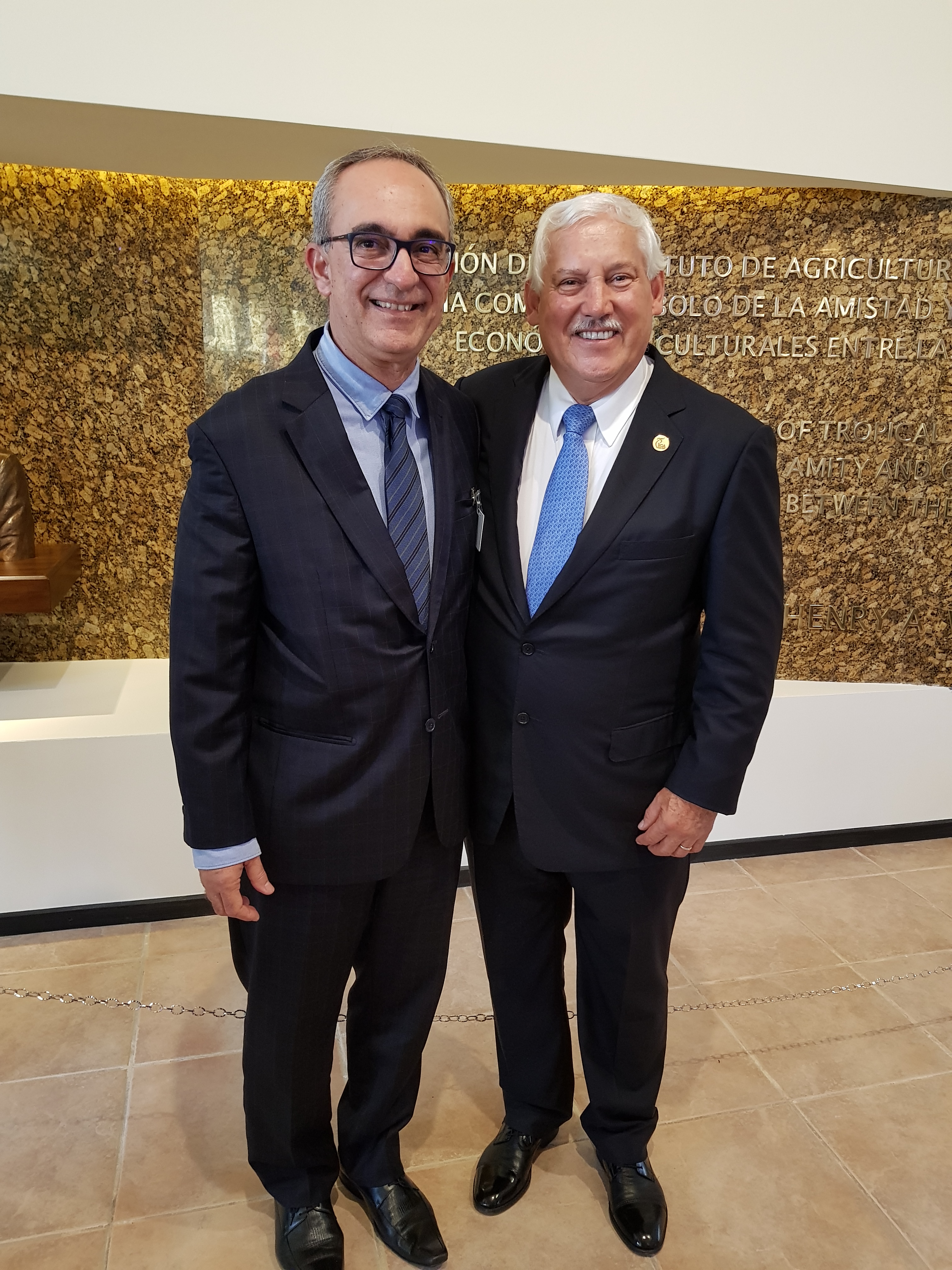The role of Codex in Agriculture and Trade
Every two years, the Inter-American Board of Agriculture, a specialised agency of the Inter-American Institute for Cooperation on Agriculture (IICA), brings together the Ministers of Agriculture of its 34 member countries from North, Central and South America and the Caribbean. IICA works to support the efforts of its members on agricultural development and rural well-being. This year, the meeting took place at IICA’s Headquarters in San Isidro de Coronado, Costa Rica, on 25 to 26 October.
The Acting President of the Republic of Costa Rica, Helio Fallas, opened the session and stressed the need for countries to continue receiving support from IICA in order to foster the development and transformation of agriculture in the Americas.
Codex, agriculture and trade
Codex Chairperson Guilherme Antonio da Costa Júnior addressed the meeting in a special session entitled "The Contribution of Codex Alimentarius to Agriculture and Trade". He spoke of today's international context in which the increasing demand for food in the world places ever greater demands on natural resources across a complex supply chain.

Guilherme da Costa with IICA Director General Dr. Víctor M. Villalobos
Ensuring food safety and facilitating international trade.
Chair da Costa underlined the importance of Codex for ensuring food safety and facilitating international trade. "Products should be used and traded correctly."he said.
The Regional Coordinator for Latin America and the Caribbean, Mr Michel Leporati, also present, said that "every year 600 million cases of foodborne disease are reported" and acknowledged that it was thanks also to the contribution of IICA that members from the region were able to attend international meetings and contribute to Codex work on food safety and fair trade practices.
Mr Brent Wilson, Deputy Director, Technical Trade Policy Division at Agriculture and Agri-Food Canada, spoke of the relevance of Codex to the region, the importance of working together to strengthen and facilitate the work of Codex and that Codex standards and recommendations are based on proven scientific information.
The Director General of IICA, Víctor M. Villalobos, stated that “agriculture plays a key role in developing our countries, overcoming the poverty that afflicts millions of people, alleviating the effects of climate change and environmental deterioration, and feeding our growing populations.”
At the heart of the Codex mandate are the core values of collaboration, inclusiveness, consensus building and transparency. Governmental and non-governmental, public and private organizations alike play a vital role in ensuring Codex texts are of the highest quality and based on sound science.
Codex would have little authority in the field of international standard setting if it did not welcome and acknowledge the valuable contributions made by observers. Expert technical bodies, industry and consumer associations
contribute to the standard-setting process in a spirit of openness, collaboration and transparency.
Intergovernmental organizations (IGOs) and international non-governmental organizations (NGOs) can apply for observer status in Codex in order to attend and put forward their views at every stage of the standard-setting process.
 Current Codex Alimentarius Commission
Current Codex Alimentarius Commission
The role of Codex in Agriculture and Trade
Every two years, the Inter-American Board of Agriculture, a specialised agency of the Inter-American Institute for Cooperation on Agriculture (IICA), brings together the Ministers of Agriculture of its 34 member countries from North, Central and South America and the Caribbean. IICA works to support the efforts of its members on agricultural development and rural well-being. This year, the meeting took place at IICA’s Headquarters in San Isidro de Coronado, Costa Rica, on 25 to 26 October.
The Acting President of the Republic of Costa Rica, Helio Fallas, opened the session and stressed the need for countries to continue receiving support from IICA in order to foster the development and transformation of agriculture in the Americas.
Codex, agriculture and trade
Codex Chairperson Guilherme Antonio da Costa Júnior addressed the meeting in a special session entitled "The Contribution of Codex Alimentarius to Agriculture and Trade". He spoke of today's international context in which the increasing demand for food in the world places ever greater demands on natural resources across a complex supply chain.

Guilherme da Costa with IICA Director General Dr. Víctor M. Villalobos
Ensuring food safety and facilitating international trade.
Chair da Costa underlined the importance of Codex for ensuring food safety and facilitating international trade. "Products should be used and traded correctly."he said.
The Regional Coordinator for Latin America and the Caribbean, Mr Michel Leporati, also present, said that "every year 600 million cases of foodborne disease are reported" and acknowledged that it was thanks also to the contribution of IICA that members from the region were able to attend international meetings and contribute to Codex work on food safety and fair trade practices.
Mr Brent Wilson, Deputy Director, Technical Trade Policy Division at Agriculture and Agri-Food Canada, spoke of the relevance of Codex to the region, the importance of working together to strengthen and facilitate the work of Codex and that Codex standards and recommendations are based on proven scientific information.
The Director General of IICA, Víctor M. Villalobos, stated that “agriculture plays a key role in developing our countries, overcoming the poverty that afflicts millions of people, alleviating the effects of climate change and environmental deterioration, and feeding our growing populations.”
 Codex and Observer
Codex and Observer
around the world since ancient times.
We might not always know where it comes from,
but we expect it to be available, safe and of good quality.










Leave a comment